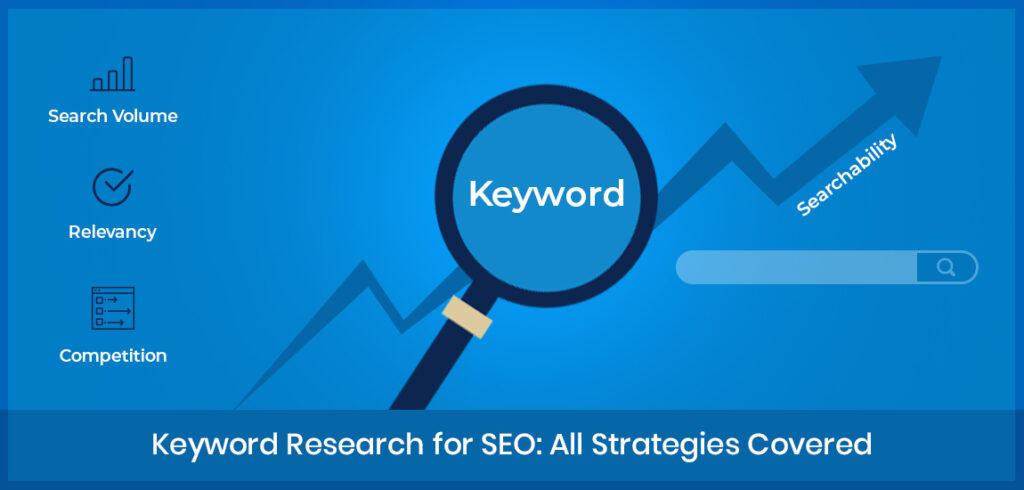KEYWORD RESEARCH SERVICES

Best Keyword for your website?
Keyword research is the process of finding and analyzing the words and phrases that users type into search engines when looking for information, products, or services related to your niche. Keyword research is essential for SEO because it helps you understand what your target audience is searching for, how competitive those keywords are, and how to optimize your website and content for them.
Why do you need keyword research?
Keyword research can help you achieve several goals, such as:
- Improving your website’s visibility and ranking on search engines
- Driving more organic traffic to your website
- Increasing your conversions and sales
- Creating relevant and engaging content for your audience
- Identifying new opportunities and gaps in the market
- Understanding your competitors’ strengths and weaknesses
- Aligning your SEO strategy with your business objectives
How to do keyword research?
Keyword research can be done using various tools and methods, but the general steps are:
- Define your topic and goals. Start by brainstorming a broad topic that relates to your niche, industry, or audience. Then, narrow it down to a specific goal or question that you want to answer with your content. For example, if your topic is “SEO optimization”, your goal could be “how to improve your keyword research for SEO”.
- Generate a list of seed keywords. Seed keywords are the main keywords that describe your topic and goal. They are usually one or two words long and have a high search volume and competition.Expand your list with long-tail keywords. Long-tail keywords are more specific and descriptive keywords that have a lower search volume and competition, but a higher conversion rate. They are usually three or more words long and match the user’s intent and expectations. “how to do keyword research for SEO”, “best SEO tools for keyword research”, “keyword optimization tips for SEO”, etc.
- Analyze the keyword difficulty and opportunity. Keyword difficulty is a metric that indicates how hard it is to rank for a given keyword on search engines. Keyword opportunity is a metric that indicates how much potential traffic you can get from a given keyword if you rank well.Choose the best keywords for your content. Based on your analysis, select the keywords that are most relevant, profitable, and achievable for your content. You should also consider the search intent behind each keyword, which is the goal or purpose of the user’s query. There are four main types of search intent: informational, navigational, transactional, and commercial investigation. You should match your content type and format with the user’s intent. For example, if the user’s intent is informational, you can create a blog post or an infographic; if the user’s intent is transactional, you can create a landing page or a product page.
How to use the keywords in your content?
Once you have chosen the best keywords for your content, you need to use them strategically in your content to optimize it for SEO. Here are some tips on how to use keywords in your content:
- Use your main keyword in the title tag, URL, meta description, and H1 tag of your page. These are the elements that search engines and users see first when they encounter your page.
- Use variations and synonyms of your main keyword throughout your content. This helps you avoid keyword stuffing and cover more semantic variations of your topic.
- Use related keywords and LSI (latent semantic indexing) keywords in your subheadings and body paragraphs. These are the keywords that are semantically related to your main keyword and help search engines understand the context and relevance of your content.
- Use modifiers and qualifiers in your keywords to make them more specific and appealing. These are words that add more information or value to your keywords, such as “best”, “guide”, “2023”, “free”, etc.
- Use internal links and external links with relevant anchor texts in your content. Internal links are links that point to other pages on your website; external links are links that point to other websites. Both types of links help search engines crawl and index your pages, as well as boost your authority and credibility.
Conclusion
Keyword research is a vital step for any SEO strategy because it helps you find the best keywords to target and optimize your website and content for them. By doing keyword research regularly, you can discover new opportunities, create relevant and engaging content, and drive more organic traffic and conversions to your website.
